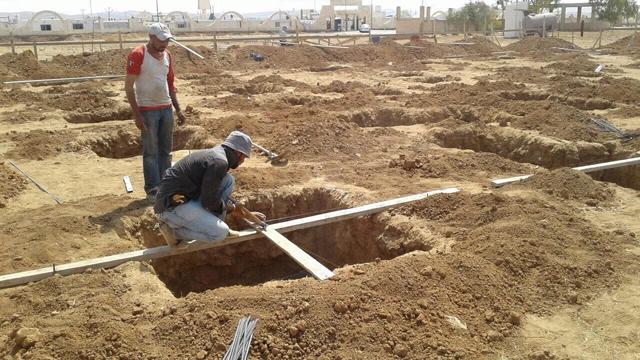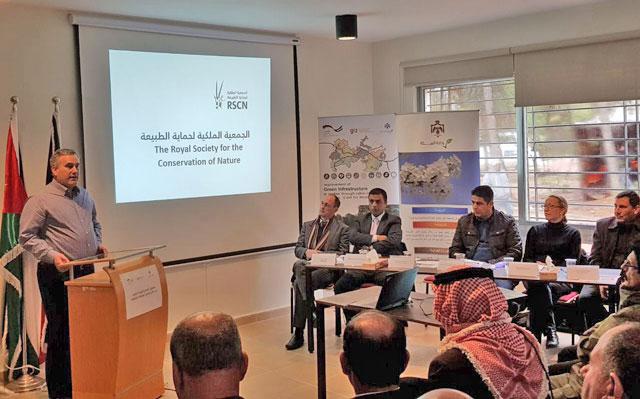You are here
Aid actors consult with Ramtha municipality over refugee response
By JT - Aug 22,2017 - Last updated at Aug 22,2017

Several projects are slated to be implemented by the end of 2017 in Ramtha Municipality (Photo courtesy of DRC)
AMMAN — A series of workshops held in Ramtha on the type of humanitarian response needed to address the needs of vulnerable Jordanian and refugee populations have concluded, with several projects slated to be implemented by the end of 2017.
A few kilometres from the Syrian border, 90km north of Amman, Ramtha’s population more than doubled since the start of the Syrian crisis in 2011, according to a Danish Refugee Council statement.
“The people know what they need and our job is to support them with projects that answer these needs,” Danish Refugee Council (DRC) Jordan Country Director Ermes Frigerio was quoted in the statement as saying.
“With this project, we were able to have the voices of our community reflected in the projects that aim to support them,” former mayor of New Ramtha Municipality Ibrahiem Alsaqar said in the statement.
“It was a unique work experience because it helped the municipality activate its development role by allocating a piece of land for the project, which helps create jobs for the host community and Syrian refugees,” head of the municipal committee Imad Alazzam said in the statement.
In cooperation with the Ramtha municipality, the Ministry of Labour and private investors, DRC is currently signing memorandums of understanding to establish a garment factory on a plot of land provided by the municipality, the statement said.
“We work at different levels and we believe in focusing on local issues, with local solutions that are more relevant and effective,” Frigerio added.
“For example, we do believe there should be more targeting of youth for business start-ups and that better childcare and safe transport within local communities will increase women’s participation in the job market,” he stated.
DRC will equipthe factory with machinery, while the investor will work to employ staff, provide raw material and bear the operational costs, according to the statement.
For Frigerio, “more funds should be dedicated to incoming-generating opportunities in Jordan and, through the expansion of relaxation of ‘rules of origin’ and increased foreign governments’ investment in infrastructure, Jordan can go a long way to help address the needs of these people.”
The LEADERS consortium, which includes five organisations: the DRC, ACTED, Save the Children, Oxfam and CARE and is funded by the EU Regional Trust Fund in Response to the Syria Crisis — the “Madad” Fund — targets Jordanians and Syrian refugees to improve their access to sustainable income and reduce unemployment among the most vulnerable, the statement concluded.
Related Articles
AMMAN — A project that aims to improve three green infrastructure sites and provide jobs to Jordanians and Syrian refugees kicked off on Mon
AMMAN — The Danish Refugee Council (DRC) Country Director in Jordan Frigerio Ermes on Saturday said that the council is currently implementi
AMMAN – Northern Mazar Municipality on Thursday inaugurated the Juhfieh Park, marking the completion of a community development project impl
















